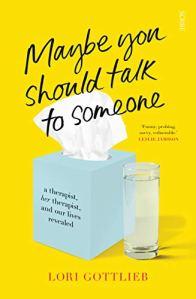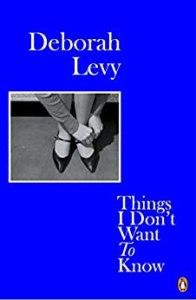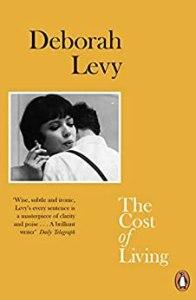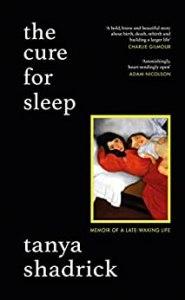When I set out to write this as a regular round-up and it felt really flat I put it down to being out of practice – followers of the blog may have noticed that I haven’t been showing up much lately. Then it occurred to me that these aren’t just any books and I needed to add some context for my response to bring it to life. They are precisely ‘life-writing’ works that I’ve deliberately picked up over the last few months to ‘feed’ myself during the (for me) challenging early stages of writing a new novel.
I got to thinking more about this as it’s not something I’ve consciously done before and I wouldn’t call it research. I’ve done plenty of that, especially on perfume for my novel Scent, and I love it. Nor is it about immersing myself in a particular location or era the way many authors do. I get that but have never felt the need as my novels are contemporary, set in (mostly French) places I know intimately and draw heavily on my preoccupations, observations and experiences – things my head is full of day after day, whether I like it or not (I don’t always).
Now we’re getting closer to the kind of writing I’ve been seeking out. It’s not just on similar themes: vulnerability, desire, sexuality and self-actualisation of women, especially ‘older’ women; it’s more a case of being on a similar emotional frequency, springing from a place of unfiltered honesty and rawness. Hopefully it doesn’t need saying that it’s not about copying anyone else’s style or ideas – I have plenty of my own. It’s about feeling a connection that inspires me to dig deep and try to achieve in fiction – so through the lens of a character I create – what these women have achieved, and given to readers, in revealing their real life humanity and all that entails. In other words, to tell a true story, whether it happened or not. (Some good examples in fiction: Life Drawing by Robin Black, My Dark Vanessa by Elizabeth Kate Russell, anything by Elena Ferrante but especially Days of Abandonment (tr. Ann Goldstein).)
LA therapist Lori Gottlieb’s Maybe you should talk to someone is the story of the author’s own transformational experience of therapy following a traumatic breakup. She brings in composite case studies based on her own clients, respecting their confidentiality. These very different stories (including a terminally ill newlywed, an older woman estranged from all her children, an arrogant and abrasive movie producer) are skilfully interwoven with the author’s own to convey the shift that takes place when people feel safe to speak freely and allow their pain to be witnessed. As someone who’s been genuinely transformed by therapy I found this book incredibly moving, fascinating and recognisable. I’d recommend it to anyone but if you’re writing anything calling for depth of character, it belongs on the top of your reading pile.
I don’t know why it took me so long to start Deborah Levy’s Living Autobiography trilogy, of which I’ve read the first two parts, Things I don’t want to know and The Cost of Living. She’s a brilliant writer whose mind and spirit I greatly admire (I once met her at a friend’s house and she described my Victoria sponge cake as ‘perfection’ – how many people can say that?!) The catalyst for this memoir was Levy’s divorce following a long marriage; the emotional and practical maelstrom into which this plunged her and her children is common but the way she reflects on it, her wider life and vocation (I think that could be said of her) as a writer is anything but. I wasn’t aware of her South African origins which make for a vivid and wrenching start before the shock of moving to cold and rainy London aged nine. So much wisdom on life, love, creativity and womanhood, so beautifully expressed. I’m glad I still have the last one to savour.
Several friends pointed me towards Tanya Shadrick’s The Cure for Sleep – memoir of a late-waking life but it was the second part of the title that pulled me in. Like so many women, I have experienced what could be seen as a late waking; the concept is practically my leitmotiv as a novelist, more so than ever in the book I’m currently writing. And yet, the fact that such notions exist, in tandem with the idea that women over forty/fifty are over, bothers me on so many levels I can’t get into it – except to say that there’s a very important role for books which challenge society’s fixed idea that you only have the first half of your life to become who you are, to have seismic revelations, to live. Just days into motherhood, Tanya Shadrick had a near-death medical emergency which made her want to stop ‘sleepwalking through life’. This is a searingly honest account of the legacy of trauma and breaking free of social convention – the writing is exquisite. I didn’t find the depiction of female desire as unrestrained as one of the author quotes suggested but could understand why that might be. If anything, it makes me appreciate the relative freedom that comes with writing fiction, although the bottom line is that whatever you put your name to, you need to own it. That’s what made all of these books so powerful and inspiring for me. That’s what I’m aiming for.
(Progress on the manuscript is slow, by the way, but it is happening!)
I’d love to hear about other writers’ experiences of this kind of reading, or anything that’s served as creative fuel for you. As to when you’ll next hear from me, who knows? I’ll be back when I have something to say.





